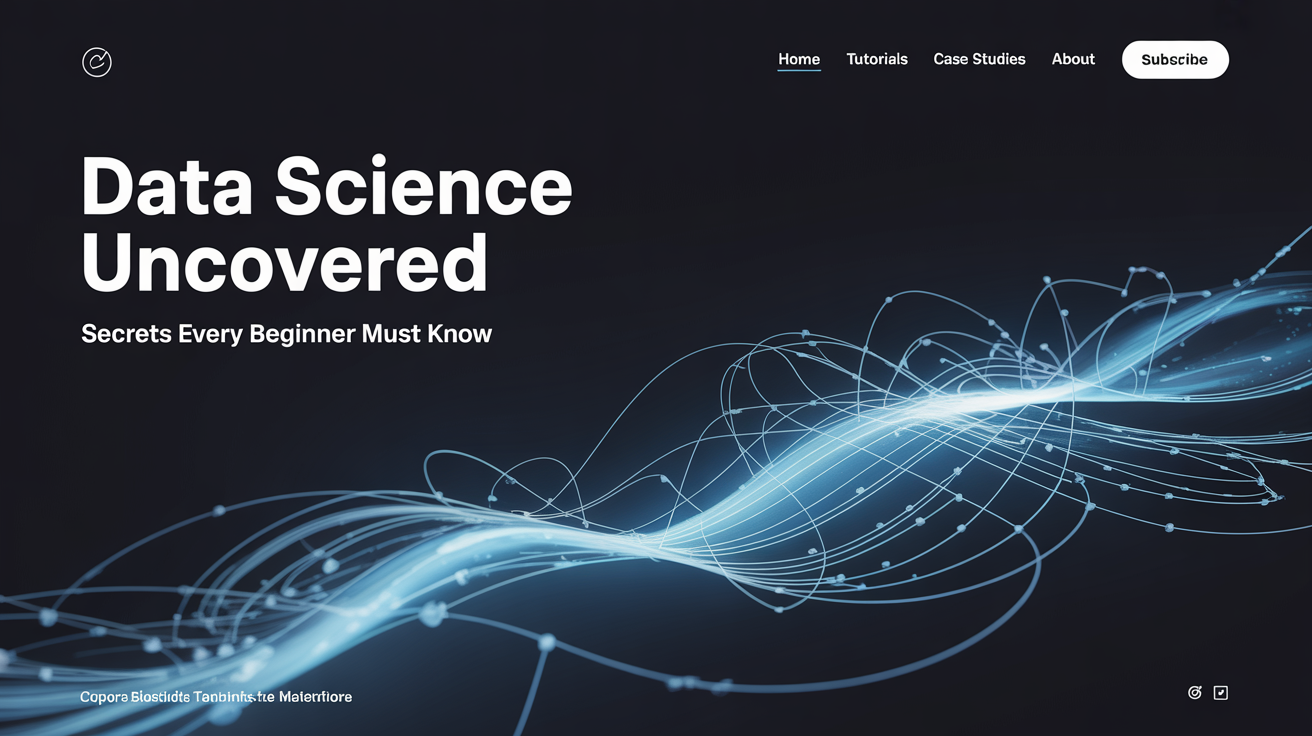Data Science Uncovered: Secrets Every Beginner Must Know

In today’s data-driven world, businesses rely heavily on insights extracted from data to make smarter decisions. But what exactly is Data Science, and why has it become one of the most sought-after career paths in 2025? In this guide, we’ll break down everything beginners need to know to understand Data Science, its applications, essential tools, and how to get started in this thriving field.
What is Data Science?
Data Science is the interdisciplinary field that uses statistics, algorithms, programming, and domain expertise to extract meaningful insights from structured and unstructured data. It goes beyond simple data analysis by not only interpreting past trends but also predicting future outcomes.
Core Components of Data Science:
Data Collection & Cleaning: Gathering accurate data from multiple sources.
Data Analysis & Visualization: Understanding patterns and trends.
Machine Learning & Predictive Modeling: Using algorithms to forecast outcomes.
Data Interpretation & Decision Making: Translating insights into actionable strategies.
Example: A retail company can use Data Science to predict customer behavior, optimize inventory, and design targeted marketing campaigns.
Key Tools Used in Data Science
To excel in Data Science, professionals rely on a combination of programming languages, visualization tools, and machine learning frameworks.
Python & R: For coding, statistical analysis, and machine learning.
SQL: For querying and managing databases.
Tableau & Power BI: For creating interactive dashboards and visual reports.
Machine Learning Libraries: TensorFlow, Scikit-learn, and PyTorch for predictive modeling.
Skills Every Beginner Should Focus On
Beginners entering Data Science should focus on building a strong foundation in:
Programming: Python or R for data manipulation and analysis.
Statistics & Mathematics: Essential for building models and understanding trends.
Data Visualization: Turning data into understandable, actionable insights.
Problem-Solving: Translating business problems into data solutions.
Machine Learning Basics: Understanding predictive modeling and algorithms.
Applications of Data Science
Data Science is transforming multiple industries, including:
Healthcare: Predicting disease outbreaks and improving patient care.
Finance: Fraud detection, risk management, and investment forecasting.
E-commerce: Personalized recommendations, pricing strategies, and customer behavior analysis.
Technology & Entertainment: Optimizing content recommendations (e.g., Netflix, Spotify).
These applications show how Data Science drives better decisions and innovation across industries.
How to Get Started in Data Science
For beginners aiming to build a career in Data Science:
Learn the Fundamentals: Start with Python, SQL, statistics, and data visualization.
Work on Real Projects: Analyze datasets, create dashboards, or build simple machine learning models.
Build a Portfolio: Showcase your projects on GitHub or personal websites.
FAQs
Q1: Do I need a technical degree to become a Data Scientist?
No. While technical knowledge helps, structured learning and practice can help anyone transition into Data Science.
Q2: Which programming language should I learn first?
Python is widely recommended for beginners due to its simplicity and vast libraries.
Q3: How long does it take to become job-ready in Data Science?
With consistent learning and practical projects, beginners can become ready for entry-level roles in 6–12 months.
Q4: Is Data Science only for tech companies?
Not at all. Data Science is applied across healthcare, finance, retail, manufacturing, and more.
Q5: What’s the difference between Data Science and Data Analysis?
Data Analysis focuses on examining historical data and trends, while Data Science involves predicting future outcomes and building intelligent models.